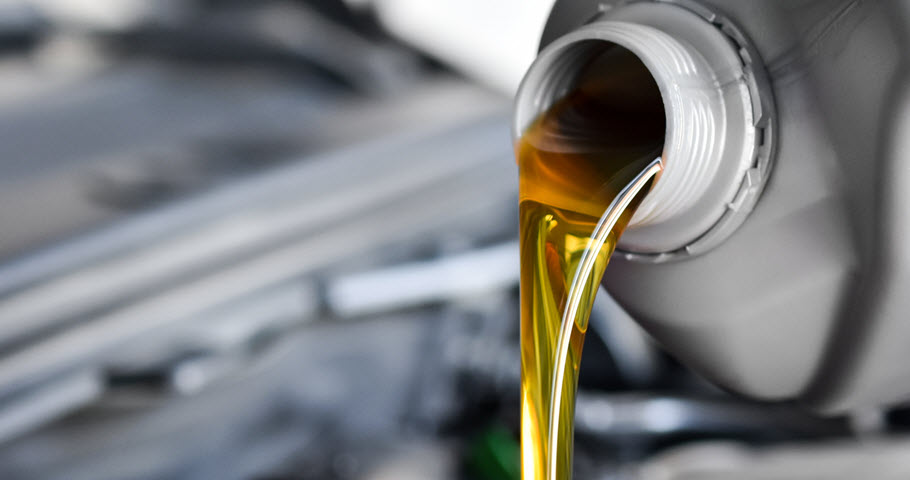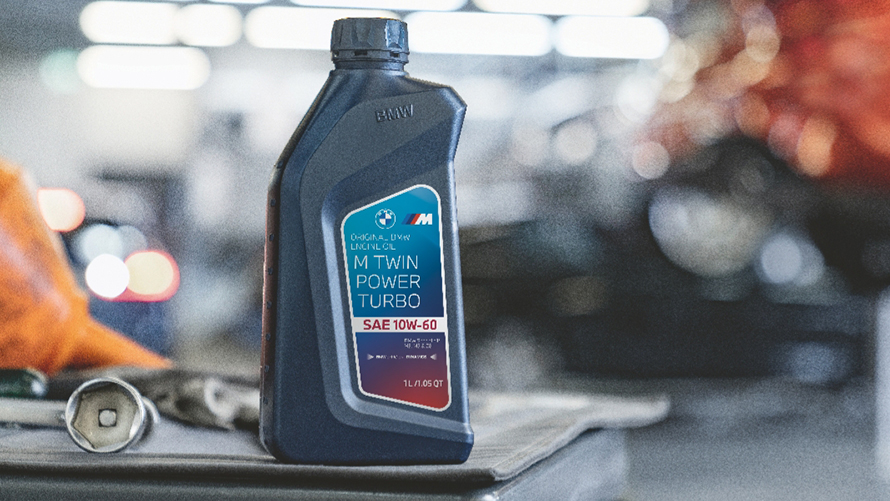What is the purpose of engine oil?
Your BMW engine requires a constant supply of oil to ensure longevity and avoid catastrophic failure, but why?
Within an engine the lubricant, or oil, performs three essential functions.
- Providing lubrication – When an engine rotates, oil is circulated within it by a mechanical oil pump, providing lubrication to critical parts. The rotating parts, such as crank shaft and cam shafts are reliant on a volume of oil with sufficient viscosity to form a wedge of lubricant which resists metal-to-metal contact, just like a surfer riding a wave on a shallow beach. Other bearing surfaces such as the piston bores rely on the oil splashing around the engine and forming a film on the surface which resists the shear action of the piston sliding past.
- Cooling – Motive power is generated from the engine by igniting petrol and oxygen. This explosive event is harnessed by the engine as it forces the piston down its bore, spinning the crankshaft and in doing so a biproduct is created – heat. This heat must eventually be dissipated into the surrounding air and in doing so it must pass through the metallic components inside the engine as well as the fluids, the water, and the oil.
- Cleaning – The combustion process within the engine causes a build up of soot and contaminants which can impact its performance. Engine oil is designs to absorb these contaminants and hold them is suspension, keeping them away from the important bearing surfaces. As contaminants build up in the oil its performance is degraded which is why regular oil changes are essential for the longevity of an engine.
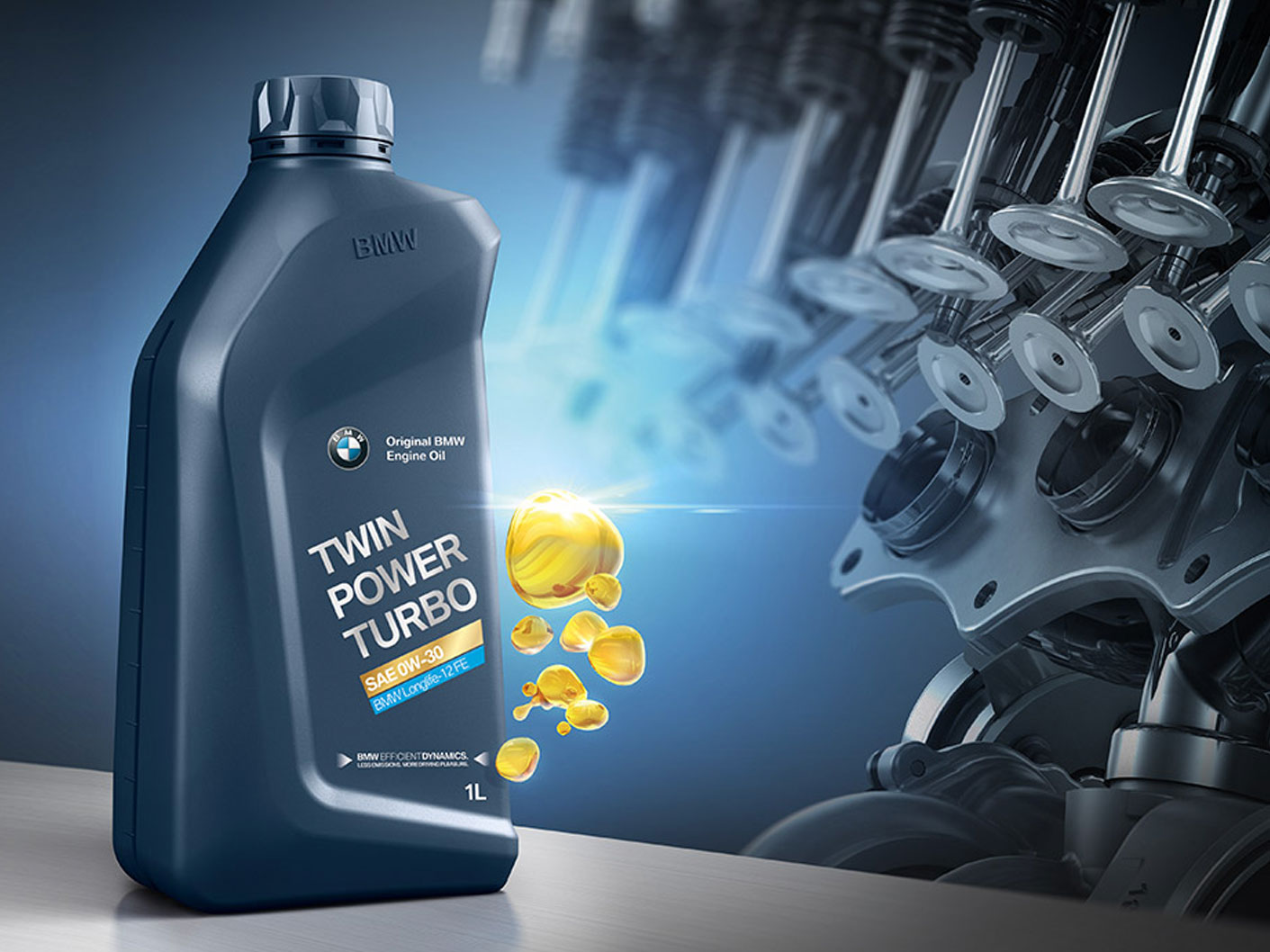
How do I know what oil to put in my BMW?
Choosing the correct oil for your BMW is imperative, not just to ensure the longevity of your engine but also to comply with BMW’s warranty requirements. Thankfully, choosing the correct oil for your car is quite straight forwards as its covered in your vehicle’s handbook – just look in the index for “oil grades for topping up”. The handbook will give you some options of BMW approved oil standards (and sometimes some non-BMW alternatives) as well as viscosity classes. So long as the correct standards and viscosity is listed on the bottle you are safe to use the oil in your car.
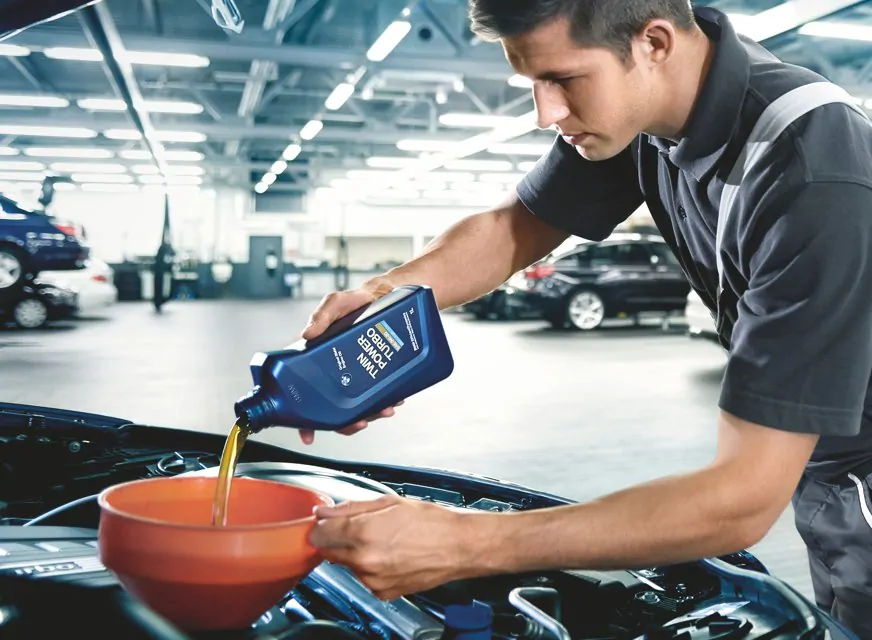
Understanding the numbers on the bottle of oil.
What is oil viscosity?
Think of viscosity as a fluid’s resistance to motion. Tip a spoon full of water and it will run away quite quickly but do the same with a spoon full on honey and it might take some time. The water is low viscosity whereas the honey is high viscosity. Oil must flow easily through your engine, hold pressure, operate on first start up in winter and at full operating temperature in the heat of summer. Ensuring your BMW has the right viscosity of oil in its engine is essential for reliable performance and to ensure the consumer can buy oil with confidence, an organisation called the SAE have created standards to measure oil viscosity.
The SAE is the Society of Automotive Engineers, a global association of professionals and technical experts who develop standards with emphasis on global transport industries. In 1911 they published their first of many standards for motor oil viscosity. They set out to design a system that could, on the one hand, reflect how suitable an oil was for use as an engine lubricant and, on the other, be easy for consumers to interpret.
What is monograde oil?
A monograde oil is one which has its viscosity tested by the SAE at a fixed operating temperature. They are suitable for applications where a stable temperature can be maintained (think of a lawn mower that’s only used in the summer months). As modern BMW engines are used all year around, snow or shine, they aren’t suitable for this application so we will disregard them for the purposes of this article.
What is multigrade oil?
Multigrade oils are more complex to manufacture and contain various chemical additives allowing them to operate across a wider temperature range. The SAE test Multigrade oil at engine operating temperature as well as cold-start winter temperatures and then grades the oils accordingly. On any container of engine oil you will see the viscosity grade listed as two numbers, the first of which is affixed to the letter W, for example “5W 40”, where the first number denotes the oils viscosity in Winter weather and the second number denotes the viscosity at operating temperature.
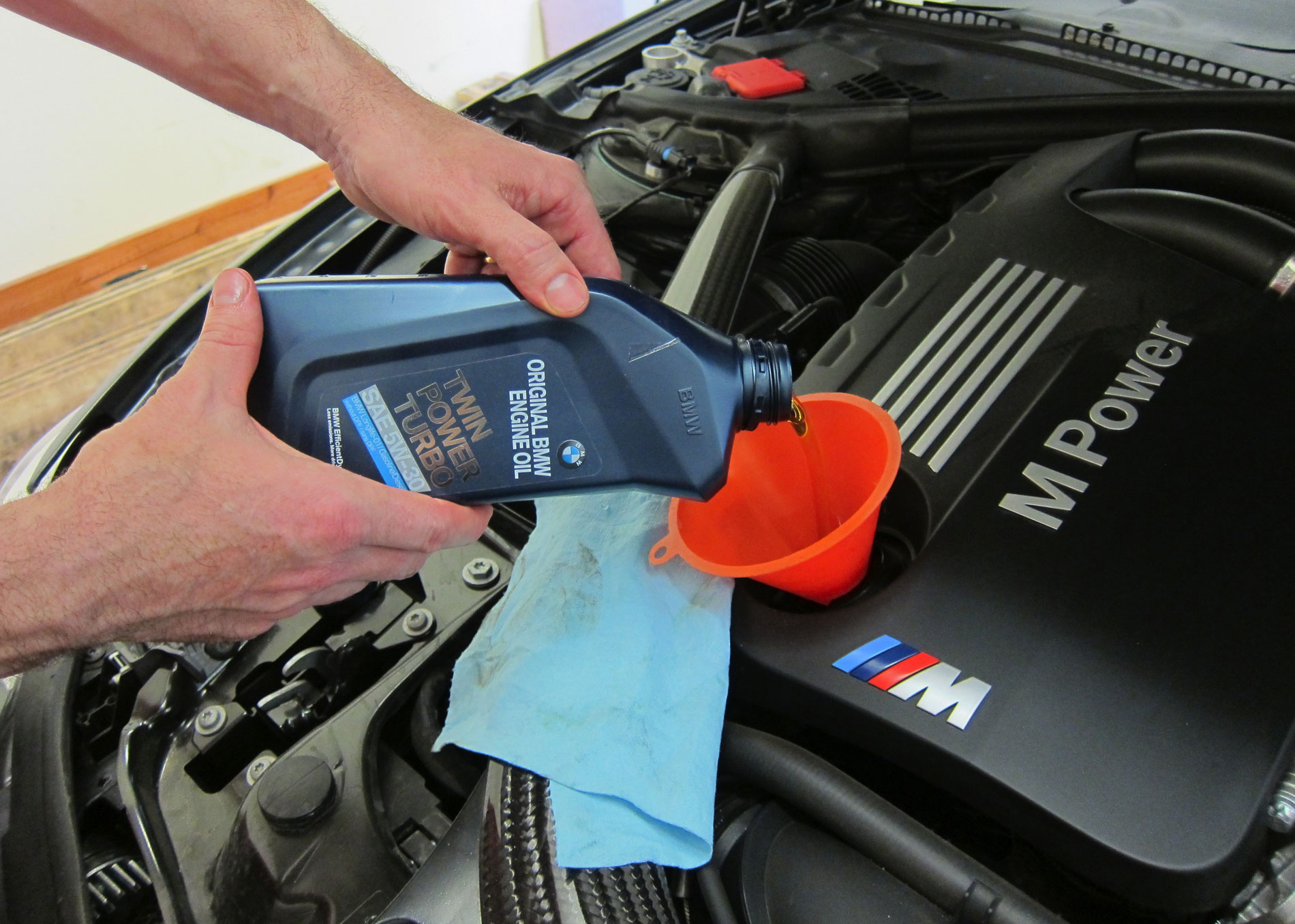
What is the difference between Mineral Oil, Synthetic Oil and Semi-Synthetic Oil?
Whilst Motor Oils will usually have additives, 75-95% of every oil will be made up of what is called a ‘base stock’. Development of oil base stocks is a complex business, and you need a degree in chemistry to understand the nuances, but to make things easier for the consumer there are a few broad groups which will be referred to on the bottle.
Mineral oil starts life as crude oil before going through a refinement process, which removes contaminants and selectively isolates oil molecules of the correct size, making it suitable for use as an engine lubricant. Oil with a mineral base stock is relatively cheap to produce and has been used successfully as an engine lubricant for over a century.
True synthetic oil is manufactured in a laboratory using pure compounds which contain no contaminants to start with. During the manufacturing process materials of low molecular weight are chemically reacted with each other to produce materials of higher molecular weight with very specific lubricating properties. These oils can be designed from the outset to suit a specific application perfectly and have a number of inherent advantages over mineral based oils such as:
- Improved low and high temperature performance
- Improved oxidative and thermal stability
- Enhanced frictional characteristics
- Longevity
Synthetic oils are the gold-standard of engine oils but this does come at a cost which is why they are often blended with more cost effective Mineral oils to create Semi-Synthetics. These oils benefit from many of the beneficial characteristics of Synthetics, whilst reducing the cost to the consumer.
Its worth noting that that some Synthetic branded oils do still have their roots in crude oil but are so heavily refined and modified that they can be classified as a Synthetic.
What are BMW Longlife oil standards?
BMW manufactures world-renowned, high-performance engines which are engineered with exacting tolerances. To ensure that their customers always fit suitable lubricants they have created their own set of standards which, if adhered to, will ensure the longevity, and the warranty of the vehicle.
The BMW standards are as follows:
BMW Longlife-98 (BMW LL-98) – Special long-life engine oil, approved by BMW. Also meets ACEA A3/B3, API SJ/CD, EC SAE 5W-40. Usually required for BMWs manufactured before MY 2002. Obsolete since 2009.
BMW Longlife-01 (BMW LL-01) – Special BMW approval for fully synthetic long-life oil. Product meets ACEA A3/B3 and API: SJ/CD EC-II. Usually required for BMWs built after MY 2002. Can also be used where a BMW Longlife-98 oil is recommended.
BMW Longlife-01 FE (BMW LL-01 FE) – Fully synthetic long-life oil with fuel economy properties. Oils meeting this specifications must have a low HTHS viscosity to meet the manufacturer’s fuel economy requirements. These oils are only suitable for the following engines: N1x, N2x, N54, N55, N63, N74.
BMW Longlife-04 (BMW LL-04) – Special BMW approval for fully synthetic long-life oil. Viscosities are SAE 0W-30, 0W-40, 5W-30 and 5W-40. Usually required for BMWs equipped with a diesel particulate filter (DPF). Can also be used where a BMW Longlife-98 or BMW Longlife-01 oil is recommended.
BMW Longlife-12 (BMW LL-12) – Special motor oil for certain approved gasoline engines and the following diesel engines only: Nx7K1, Nx7U1, Nx7O1 from model year 2013. Not suitable for engines with 2 or 3 turbos.
BMW Longlife-14+ (BMW LL-14+) – Special motor oil for the following gasoline engines only: N20, Bx8 from model year 2014. Not allowed for diesel engines.
BMW Longlife-17 FE (BMW LL-17 FE) – This specification requires a low SAPS, usually ACEA C5 compliant, 0W20 oil. Oils meeting this specification are usually recommended for the newest gasoline and diesel-powered BMWs. The base oil is typically from Group IV (polyalphaolefines).
What are ACEA standards?
On some BMW’s the handbook will list an oil with an ACEA standard as being compatable.
Association des Constructeurs Européens d’Automobiles (The European Automobile Manufacturers’ Association), or ACEA, was founded in 1991.
The founders of ACEA were the 15 most significant European car manufacturers – BMW, DAF, Daimler-Benz, FIAT, Ford, General Motors Europe, MAN, Porsche, Renault, Rolls Royce, Rover, Saab-Scania, Volkswagen, Volvo Car, and AB Volvo.
In recent years, the organization has welcomed a wide range of non-European motor vehicle manufacturers with production facilities and research centres in the European Union.
ACEA is involved in a wide range of activities, and defining European oil standards is one of them.
If your handbook list an oil or a particular ACEA standard as being compatible with your car you can be confident that the oil is safe to use, and will ensure your warranty remains intact.
The bottom line is that BMW very carefully chooses their oils to work perfectly within their own engines. If you stick to the BMW guidelines all the considerations and complications of oil selection will be taken care of.

